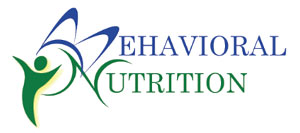Treatment Guidelines:
- Review history of eating disorder, patterns and behaviors
- Analyze labs to assess for food allergies/intolerances, re-feeding syndrome, organ function, and potential imbalances or deficiencies
- Set weight individualized weight goals
- Determine individualized nutrient, fiber and fluid recommendations to minimize potential gastro-intestinal discomfort associated with re-feeding process
- Dietitians may accommodate vegetarianism/veganism if appropriate depending on nutritional deficiencies and history of behaviors
- Introduce risk or challenge foods at a rate which feels reasonable and realistic for the patient
- Dietitians may encourage patients to bring in their risk food to try during a meeting or in PHP/IOP if increased support is needed
- Dietitians may eat the challenge food with their patients during a meeting to provide maximal support
- Integrate supplements and nutritional support if needed, SECONDARY to food and fluids
- Recommendations are provided to maximize bioavailability (percentage which can be absorbed by the body)
- Determine and adjust exercise restrictions or recommendations on an individual basis
- Monitor weight depending on personal goals and progress
Blind weights determined on a case-by-case basis

